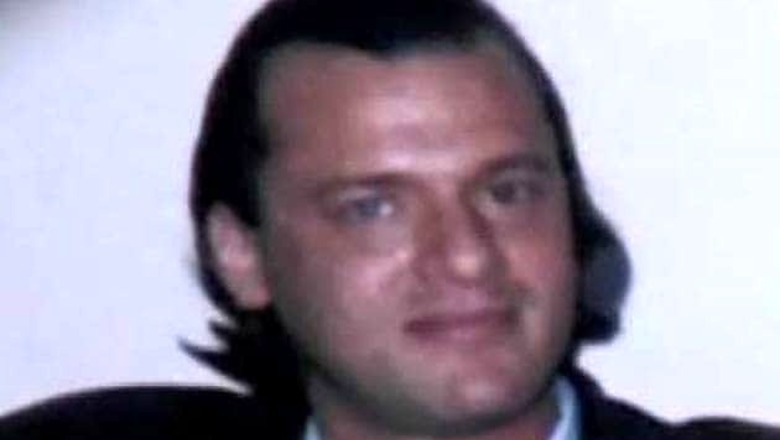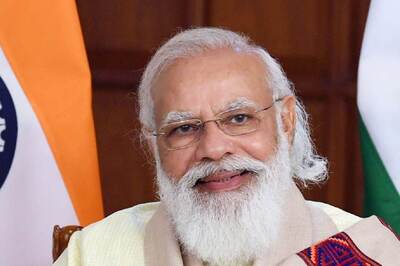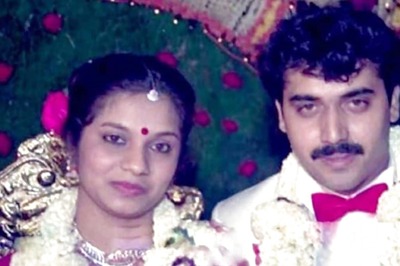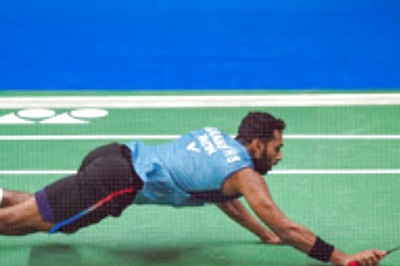
views
New Delhi: Pakistani terror group Lashkar-e-Toiba operative and 2008 Mumbai attacks conspirator David Coleman Headley has been sentenced to 35 years in jail but India has expressed its unhappiness about the verdict delivered by a Chicago court on Thursday. The 26/11 mastermind pleaded guilty to 12 counts of federal terrorism crimes and Judge Harry D Leinenweber said that Headley wrote a letter to him asking for another chance to redeem himself.
The judge said that Headley cooperated with US authorities to save his own life as he was facing the death penalty. So the US government asked for a lighter sentence than life-in-prison for David Headley citing his 'extensive cooperation' in the case. Headley had pleaded guilty to all charges after a plea bargain which exempted him from extradition to India and a possible death penalty.
Headley was a US informer, who either turned rogue or stayed a double agent till he was arrested in 2009, prompting many to wonder how he stayed off the Indian radar for seven years and whether the US government shielded him and was soft on the Pakistani intelligence agency ISI to protect itself.
The US duplicity in the case has raised several questions. Did the US know but failed to warn India about Headley's terror activities, specifically the 26/11 plot? Why didn't the US alert India to Headley's travel after 26/11 when he was on another reconnaissance mission.
Why have, since 2010, no requests for access to Headley been entertained? Why has the US government not pushed Pakistan to hand over his handlers - Pakistani military officers who are fugitives? Why has the US government declared that the ISI chief has immunity from lawsuits in America?
However, India was dissatisfied with the jail term with External Affairs Minister Salman Khurshid saying that if the Lashkar operative had been tried in India, he would have got a tougher punishment. After 35 years the 52-year-Headley will be 87 if and when he walks out of a US prison. Several families of the 26/11 attacks victims also said that the jail term was too lenient for his crime.
"We would have sought much more for him had he been tried in India. The judge is bound by the structured system of justice delivery in US. The judge has taken into account the maximum. It's a beginning. I cannot speculate on whether he will ever be allowed in India. We have been pushing that he gets extradited. Given the circumstances it's good to know that he has been made accountable," said Khurshid.
Extradition to India is virtually ruled out unless Headley violates his plea agreement, but the Pakistani-American LeT terrorist's testimony will still be useful for the Mumbai terror attacks case being pursued by the National Investigation Agency (NIA). The NIA has chargesheeted Headley along with Tahawwur Rana, LeT chief Hafiz Saeed and four retired and serving Pakistani military officers.
In the days ahead, the NIA is likely to seek Headley's video deposition, access to Tahawwur Rana and Headley's wife and girl friend even as the US defended the sentence, claiming he helped in preventing more terror attacks and gave crucial information on the terror network.
Meanwhile, Pakistan remains a challenge as well because there has been little progress in the 26/11 trial there and there has been no action against the mastermind Hafiz Saeed. Recently, Pakistani Interior Minister Rehman Malik even claimed that Headley was an Indian agent, which gives an idea of the challenge India faces in pursuing justice for 166 innocents killed by the 10 Lashkar terrorists during the over 60 hour siege of Mumbai in November 2008.
"We can't expect everything to happen to our satisfaction. We have had an ongoing dialogue with us on Headley and Rana. They (Pakistan) have not done anything close to what we wanted," said Khurshid.
The families of the victims said the prison term was not stringent enough. They say Headley, who laid the ground work for attacks where 166 people were killed, got easily off the hook by turning approver.
"It was an appalling lack of honour for all those killed and the lives of the survivors and their families. It shows lack of respect for the people of Mumbai and India. I think it's not fair, I do not agree with sentence. It shows the lack of value for life. In a letter written it said Headley showed remorse. Do you believe that? From what I have seen, my gut feeling is no I don't. What he feels now doesn't matter. What is done is done. Actions have consequences. If he feels remorse he should get life imprisonment. He should have been tried in India and he got off the hook easily. He should not get off the hook for a life sentence," said Kia Scherr, who lost her daughter and husband in the 26 11 attacks says.
While delivering the sentence, judge Leinenweber said that there is still a possibility that if Headley violates his plea agreement, he might be extradited to India. "Mr Headley is a terrorist. He commits a crime, cooperates and then gets rewarded for the cooperation. I do not have any faith in Mr Headley when he says he is a changed person now," said the judge. He added that Headley is a terrorist despite his cooperation with the court.
The US Embassy in India defended the decision not to seek death for Headley. "The Department of Justice's decision not to seek death penalty for Headley was taken because of his willingness to cooperate with US and Indian authorities 35-year sentence imposed on Headley is actually a step towards bringing 26/11 perpetrators to justice," the Embassy said in a statement.
The US embassy also emphasised that Headley provided extensive information on the Lashker-e-Toiba which is behind the 26/11 attack and reiterated that the US and India counter-terrorism cooperation is stronger than ever.



















Comments
0 comment